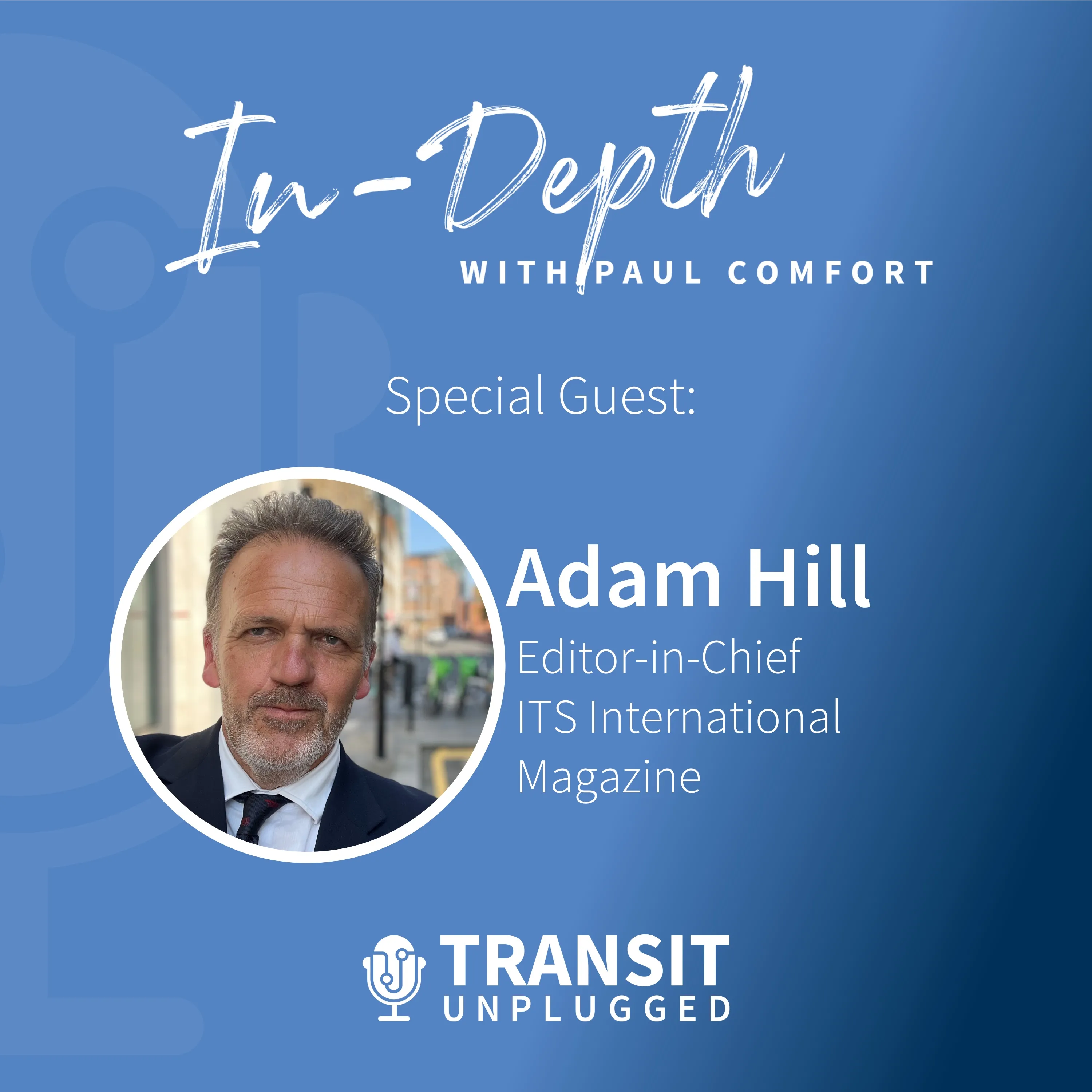ITS editor Adam Hill talks to Paul Comfort on this episode of Transit Unplugged
November 27, 2023
Read time: 1 min

In this episode of Transit Unplugged, host Paul Comfort interviews Adam Hill, editor of ITS International. They discuss the challenges and prospects of high-speed rail in England and the US, including the various political and logistical issues.
Listen here as Adam explains London’s new Ultra Low Emission Zone, designed to encourage public transit use and discusses the struggles with its introduction. They explore how public transit can be made popular, touching on how to capture public interest and cater to convenience for the users.
Paul and Adam wrap up the episode discussing the impacts of congestion charging and low emissions zones in encouraging public transit use.









